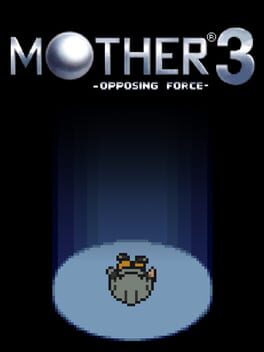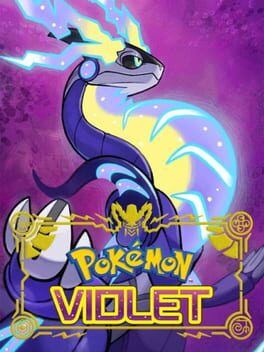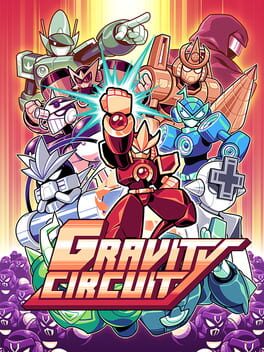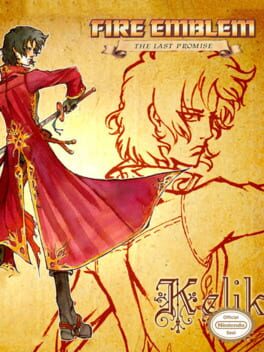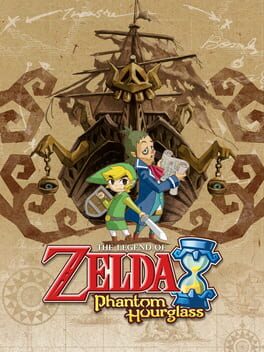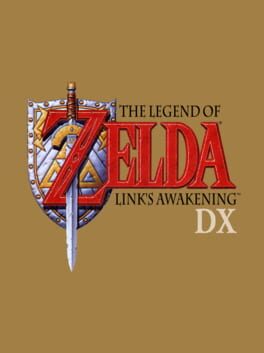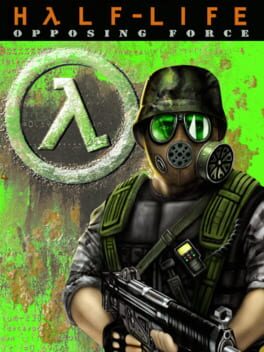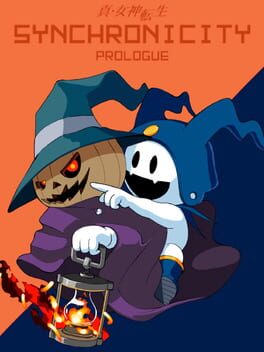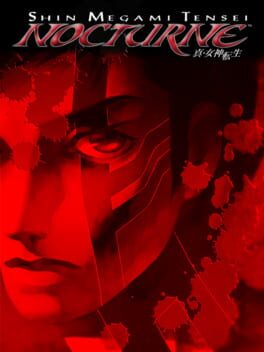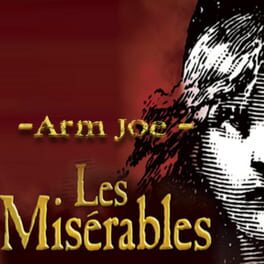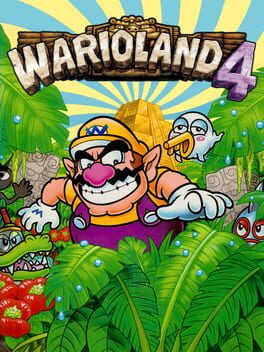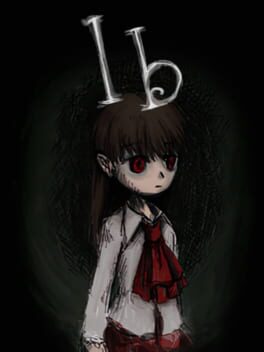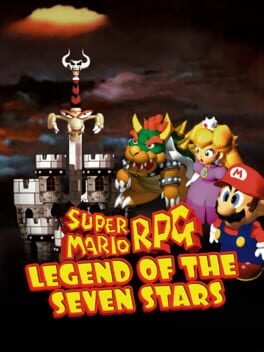2022
Modern Pokémon game discourse is looking at a pretty average game and choosing to either handwave every issue and bootlick for the giant corporation or obsessively hate on every aspect no matter how petty and blame it on the "laziness" of individual workers while never so much as mentioning the legitimate issues behind the scenes like crunch culture/restrictions caused by deadlines
2023
2013
Mandatory to listen to this on loop while reading
The Last Promise is one of those rare fangames with such a legacy to it that it might as well be counted amongst the official series. To the casual observer, that legacy is just the scene where the protagonist gives an edgy speech about handling the weight of death and kills a bunch of knights while a Sonic 06 midi plays. But to those too far gone into FE communities, it's seen as an technically impressive feat that, especially for a time where FE rom hacking was in its infancy and even more especially when you realize it was made primarily by a teenager. It is not an understatement to say that the current FE hacking scene owes its existence to this game. Playing it and checking off other FE games you unironically prefer it to in the same way a military sniper checks down their kids is a time honored rite of passage. I've seen a fair bit of people echo the sentiment that it's better than all three of the official GBA FEs and while Sacred Stones has too much personal significance for me to fully agree, I absolutely can see where these people are coming from.
Mechanically, it doesn't do anything particularly unique among other FEs. It's just a really good example of the enemy phase focused gameplay associated with 7-9. At its best, you get creative maps like Chapter 12, a Thracia style escape map balanced around having limited resources at your disposal, Chapter 5x, the rare defense map that's actually good, and Chapter 27, a map with gimmick so good that Engage may or may not have ripped it off a decade later. At its worst, you have to deal with a couple long and boring maps which are nowhere near the worst ones official FE games have churned out.
Narratively, it's a mix of genuinely cool stuff and stuff that's ironically funny. Whereas most pre-3DS FE games try to use prose that fits a medieval setting, The Last Promise is written with a bluntness that feels "online" for lack of a better term. This results in a lot of scenes taking on a more comedic tone than intended: the infamous Sonic 06 midi speech, the earlygame chapter where Siegfried gets mad at some random village for not having a milita in a way that can only be described as the former being portrayed as the Chad and the latter being portrayed as the Soyjak, and a major boss who's so edgy that his description reads "Plagued by a hatred for anything that lives, he is 'the Blood Reaper.'" But still, there is a fair bit of genuinely compelling stuff here. The prevailing dynamic between Siegfried and Kelik both being bound to a promise they made because of the death of a respective loved one but the former being an idealist who carelessly rushes into battle and the latter being more aware of his material conditions and working within them, at the cost of having a hard time trusting most people. Both learn and grow from each other as seen in the opening of Chapter 23 and a subsequent optional talk conversation where they get genuine and emotionally vulnerable with each other and their dynamic with each other culminates in an awesome climax. It's nothing groundbreaking but it's impressive for a teenager and I'd put it above most FE stories (low bar admittedly).
However, what really makes Last Promise stand out as special isn't so much any individual aspect mechanically or narratively but rather the end of an era it represents. The patch completing the main story was released on August 17th, 2012, just four months after the Japanese release of Awakening and six months before the Awakening release of said game. The Last Promise feels like a time capsule of when FE was seen as this niche thing that you played for the mystique of a game where characters can actually die and not a mainstream seller of millions of copies that you played because you wanted to date and/or fuck the characters. There's so much little things that give me anemoia for FE communities I was never in, be it Siegfried's personal weapon Nothung harkening back to a time where calling a unit a "mage-killer" wouldn't cause you to get laughed out of the discussion, the character portraits being collaborative effort by multiple FE forum users, and the use of bit crushed OSTs of more niche RPGs like Valkyrie Profile and Ys hammering that this was when most people saw FE as just like those games. Playing The Last Promise a decade after its release gave me a feeling of discovery that I haven't had with new FE games for a long time.
Is The Last Promise a masterpiece either mechanically or artistically that's worthy of a 9/10? Probably not but review scores are bullshit and shouldn't be seen as anything grander than "I like this game this much." The Last Promise just has an indescribable aura to it that transcends traditional quality. Maybe being an FE fan for this long has done too much damage to me mentally and these paragraphs seem incomprehensible to normal human beings idfk.
The Last Promise is one of those rare fangames with such a legacy to it that it might as well be counted amongst the official series. To the casual observer, that legacy is just the scene where the protagonist gives an edgy speech about handling the weight of death and kills a bunch of knights while a Sonic 06 midi plays. But to those too far gone into FE communities, it's seen as an technically impressive feat that, especially for a time where FE rom hacking was in its infancy and even more especially when you realize it was made primarily by a teenager. It is not an understatement to say that the current FE hacking scene owes its existence to this game. Playing it and checking off other FE games you unironically prefer it to in the same way a military sniper checks down their kids is a time honored rite of passage. I've seen a fair bit of people echo the sentiment that it's better than all three of the official GBA FEs and while Sacred Stones has too much personal significance for me to fully agree, I absolutely can see where these people are coming from.
Mechanically, it doesn't do anything particularly unique among other FEs. It's just a really good example of the enemy phase focused gameplay associated with 7-9. At its best, you get creative maps like Chapter 12, a Thracia style escape map balanced around having limited resources at your disposal, Chapter 5x, the rare defense map that's actually good, and Chapter 27, a map with gimmick so good that Engage may or may not have ripped it off a decade later. At its worst, you have to deal with a couple long and boring maps which are nowhere near the worst ones official FE games have churned out.
Narratively, it's a mix of genuinely cool stuff and stuff that's ironically funny. Whereas most pre-3DS FE games try to use prose that fits a medieval setting, The Last Promise is written with a bluntness that feels "online" for lack of a better term. This results in a lot of scenes taking on a more comedic tone than intended: the infamous Sonic 06 midi speech, the earlygame chapter where Siegfried gets mad at some random village for not having a milita in a way that can only be described as the former being portrayed as the Chad and the latter being portrayed as the Soyjak, and a major boss who's so edgy that his description reads "Plagued by a hatred for anything that lives, he is 'the Blood Reaper.'" But still, there is a fair bit of genuinely compelling stuff here. The prevailing dynamic between Siegfried and Kelik both being bound to a promise they made because of the death of a respective loved one but the former being an idealist who carelessly rushes into battle and the latter being more aware of his material conditions and working within them, at the cost of having a hard time trusting most people. Both learn and grow from each other as seen in the opening of Chapter 23 and a subsequent optional talk conversation where they get genuine and emotionally vulnerable with each other and their dynamic with each other culminates in an awesome climax. It's nothing groundbreaking but it's impressive for a teenager and I'd put it above most FE stories (low bar admittedly).
However, what really makes Last Promise stand out as special isn't so much any individual aspect mechanically or narratively but rather the end of an era it represents. The patch completing the main story was released on August 17th, 2012, just four months after the Japanese release of Awakening and six months before the Awakening release of said game. The Last Promise feels like a time capsule of when FE was seen as this niche thing that you played for the mystique of a game where characters can actually die and not a mainstream seller of millions of copies that you played because you wanted to date and/or fuck the characters. There's so much little things that give me anemoia for FE communities I was never in, be it Siegfried's personal weapon Nothung harkening back to a time where calling a unit a "mage-killer" wouldn't cause you to get laughed out of the discussion, the character portraits being collaborative effort by multiple FE forum users, and the use of bit crushed OSTs of more niche RPGs like Valkyrie Profile and Ys hammering that this was when most people saw FE as just like those games. Playing The Last Promise a decade after its release gave me a feeling of discovery that I haven't had with new FE games for a long time.
Is The Last Promise a masterpiece either mechanically or artistically that's worthy of a 9/10? Probably not but review scores are bullshit and shouldn't be seen as anything grander than "I like this game this much." The Last Promise just has an indescribable aura to it that transcends traditional quality. Maybe being an FE fan for this long has done too much damage to me mentally and these paragraphs seem incomprehensible to normal human beings idfk.
I work in accounting and while I still do legitimately enjoy my current position, the nature of eight hour data entry shifts means that I will often return home feeling exhausted, especially on days where my seasonal allergies were particularly active. I'd often find myself unwilling to even play games after these shifts, especially since I primarily play games on PC, meaning I'd have to deal with a screen that looks just like the one that I just stared at for eight hours.
One day after work, I booted up my Switch and started playing Link's Awakening, aiming to rectify the error I made in never finishing it as a young teen experiencing it through the 3DS Virtual Console. And over the course of the five sessions I played it in (the first four of those being directly after returning home from work), I noticed that something about it seemed to make it the perfect game to play when I was tired out from an eight hour shift. This initial thought led to further thoughts about how the game was made after hours as something of a passion project by the devs. And the similarities between the circumstances Link's Awakening was made in and the circumstances I was playing it in made me realize exactly why I felt the way I did about it: it fundamentally is a game about escapism.
Whereas the adventures in the first three Zelda games are presented as something Link does both out of obligation to both the monarchy of his world and his status as a hero of legend, Link's Awakening establishes Link's primary goal as just getting back home or more specifically, waking up from a dream. However, the game puts a great deal of emphasis on him helping people on a smaller, more personal level. It initially struck me as odd how the trading sequence, a staple of the Zelda series that was introduced in this game, was mandatory here as opposed to its later incarnations where it's an optional sidequest. But it works well in presenting the game's adventure as an act of wish fulfillment on the part of Link. Instead of following some vague duties that affect the world on a macro scale that he can't really process, he's helping people in a way where he can more easily visualize the good he's done. It's one of the many examples of the first incarnation of a mechanic in a game series feeling the most impactful because it was there for a reason that isn't just "Hey it was cool when this other game did it so let's have it in this one too."
Similarly, it's interesting to contrast Marin to the earlier incarnations of Zelda when you see the former as another act of wish fulfilment on Link's part. Whereas the first three games' Zeldas don't really have chemistry with Link and only really exist to fulfill the common heteronormative fantasy of saving/getting the girl, Marin feels like an actual person. I especially love the part of the game where Marin accompanies you and all the optional interactions that happen as a result of it. Stuff like how you can have her try the Trendy Game only to get kicked out or how if you play the Ocarina, she'll tease you and pretend she didn't really goes a long way in making this part of the game feel like friends or lovers genuinely hanging out. I read Marin as representing a desire for genuine companionship on the part of Link. Maybe I'm entirely wrong with these readings but that's part of what makes stories that take place in the dreams of a major character so compelling when executed well. You can always read something interesting from any given occurrence and try to piece together what it says about the character in question.
Of course, this is all only temporary. All dreams have to end eventually and as you enter the latter half of the game, the ephemerality of the game's world becomes increasingly apparent. Ever since the defeat of the fifth boss, Link will get constantly bombarded with reminders of the true nature of Koholint Island. This culminates in the final battle which isn't against some power hungry tyrant like Ganon but rather a more abstract entity that wants to keep the world from disappearing. After this fight, the game ends with shots of all of Koholint being erased and Link waking up alone in the vast blue sea. Just as the stories we use to distract ourselves from our obligations in the capitalist hellscape we live in are only temporary, so too is the dream that keeps Link away from his obligations as a hero of legend.
But I think what stands out about the ending shot of Link alone in the ocean is how instead of crying because it's over, he smiles because it happened. While the stories we distract ourselves with may not be real, the ideas we've learned through them, the emotions we've felt through them, and possibly even the people we've met through them are. Escapism might not be a foolproof solution to our problems and could even make them worse if done in excess but it's something that humans seek out for a reason. We all need something to keep our mind off of our own struggles.
If Link to the Past was the game that set the body (i.e. structure) of the average Zelda game in stone, then Link's Awakening was the game that established the heart of Zelda, be it through the strange but memorable style of characterization that the devs gave credit to Twin Peaks for inspiring or through the various themes and ideas that Zelda explores at its best.
One day after work, I booted up my Switch and started playing Link's Awakening, aiming to rectify the error I made in never finishing it as a young teen experiencing it through the 3DS Virtual Console. And over the course of the five sessions I played it in (the first four of those being directly after returning home from work), I noticed that something about it seemed to make it the perfect game to play when I was tired out from an eight hour shift. This initial thought led to further thoughts about how the game was made after hours as something of a passion project by the devs. And the similarities between the circumstances Link's Awakening was made in and the circumstances I was playing it in made me realize exactly why I felt the way I did about it: it fundamentally is a game about escapism.
Whereas the adventures in the first three Zelda games are presented as something Link does both out of obligation to both the monarchy of his world and his status as a hero of legend, Link's Awakening establishes Link's primary goal as just getting back home or more specifically, waking up from a dream. However, the game puts a great deal of emphasis on him helping people on a smaller, more personal level. It initially struck me as odd how the trading sequence, a staple of the Zelda series that was introduced in this game, was mandatory here as opposed to its later incarnations where it's an optional sidequest. But it works well in presenting the game's adventure as an act of wish fulfillment on the part of Link. Instead of following some vague duties that affect the world on a macro scale that he can't really process, he's helping people in a way where he can more easily visualize the good he's done. It's one of the many examples of the first incarnation of a mechanic in a game series feeling the most impactful because it was there for a reason that isn't just "Hey it was cool when this other game did it so let's have it in this one too."
Similarly, it's interesting to contrast Marin to the earlier incarnations of Zelda when you see the former as another act of wish fulfilment on Link's part. Whereas the first three games' Zeldas don't really have chemistry with Link and only really exist to fulfill the common heteronormative fantasy of saving/getting the girl, Marin feels like an actual person. I especially love the part of the game where Marin accompanies you and all the optional interactions that happen as a result of it. Stuff like how you can have her try the Trendy Game only to get kicked out or how if you play the Ocarina, she'll tease you and pretend she didn't really goes a long way in making this part of the game feel like friends or lovers genuinely hanging out. I read Marin as representing a desire for genuine companionship on the part of Link. Maybe I'm entirely wrong with these readings but that's part of what makes stories that take place in the dreams of a major character so compelling when executed well. You can always read something interesting from any given occurrence and try to piece together what it says about the character in question.
Of course, this is all only temporary. All dreams have to end eventually and as you enter the latter half of the game, the ephemerality of the game's world becomes increasingly apparent. Ever since the defeat of the fifth boss, Link will get constantly bombarded with reminders of the true nature of Koholint Island. This culminates in the final battle which isn't against some power hungry tyrant like Ganon but rather a more abstract entity that wants to keep the world from disappearing. After this fight, the game ends with shots of all of Koholint being erased and Link waking up alone in the vast blue sea. Just as the stories we use to distract ourselves from our obligations in the capitalist hellscape we live in are only temporary, so too is the dream that keeps Link away from his obligations as a hero of legend.
But I think what stands out about the ending shot of Link alone in the ocean is how instead of crying because it's over, he smiles because it happened. While the stories we distract ourselves with may not be real, the ideas we've learned through them, the emotions we've felt through them, and possibly even the people we've met through them are. Escapism might not be a foolproof solution to our problems and could even make them worse if done in excess but it's something that humans seek out for a reason. We all need something to keep our mind off of our own struggles.
If Link to the Past was the game that set the body (i.e. structure) of the average Zelda game in stone, then Link's Awakening was the game that established the heart of Zelda, be it through the strange but memorable style of characterization that the devs gave credit to Twin Peaks for inspiring or through the various themes and ideas that Zelda explores at its best.
2022
2001
2012
Fuck being sad that Mario RPGs don't have "deep" stories anymore, I'm sad that Mario RPGs won't be this completely unhinged anymore. Between Mario almost punching a child, the late-game boss that ends with what is effectively a suicide joke, and like half the shit that Ted Woolsey added, I never knew how much I wanted a Mario game with this much unhinged energy.
